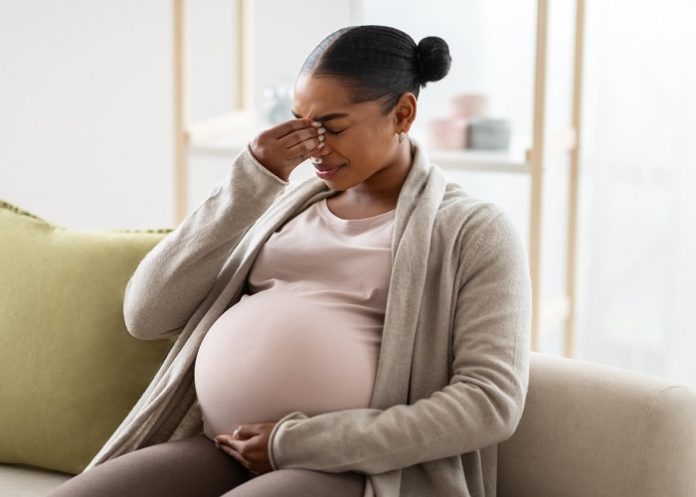Over nearly four decades since Prozac was approved for the treatment of depression, waves of concern about the effects of anti-depressants during pregnancy have resulted in a practical consensus: though use of the drugs may be associated with a slight rise in the odds of birth defects, the risk of leaving a mother’s depression untreated is often greater.
But a high-level shift is taking place within the US Department of Health and Human Services under Secretary Robert F Kennedy Jr, who has made reducing the prescription of psychotropic drugs a policy priority, reports The New York Times.
Among a select group of experts convened by the Food and Drug Administration (FDA) this week to discuss the safety of anti-depressants during pregnancy, around half said that women should receive a more clear and forceful warning about potential risks to the foetus.
Andrew Nixon, an HHS spokesman, said the agency would not comment on whether there were plans to require a so-called black box warning about the use of selective serotonin reuptake inhibitors, or SSRIs, in pregnancy.
In introductory remarks, FDA Commissioner Dr Marty Makary said that “some women are not aware” of the risks of anti-depressants in pregnancy, suggesting openness to the idea. Around 5% of pregnant American women take anti-depressants, he said, adding that serotonin “might play a crucial role in the development of organs of a baby in utero.”
“SSRIs have been implicated in different studies to be involved in postpartum haemorrhage, pulmonary hypertension and cognitive downstream effects in the baby, as well as cardiac birth defects,” he observed.
After the event ended, some experts who watched the panel described it as unbalanced, favouring prominent critics of anti-depressants over those who treat severely ill patients.
“I am far more concerned about the risks of untreated illness than I am about the risk of medication,” said Dr Nancy Byatt, a perinatal psychiatrist at the UMass Chan Medical School.
Studies conducted over many years, on hundreds of thousands of women, have concluded that anti-depressants do not cause major harm to the developing foetus, she said.
Members of the panel were blunt in their comments.
“The public needs better information, and the FDA must strengthen the warnings,” said Dr Adam Urato, Chief of Maternal and Foetal Medicine at the MetroWest Medical Centre in Massachusetts.
“Never before …. have we chemically altered developing babies like this, especially the developing foetal brain, and this is happening without any real public warning, and must end,” he said.
Another panellist, Dr Josef Witt-Doerring, the founder of a “tapering clinic” that helps patients quit psychiatric medications, said that many women taking anti-depressants came to him when they wanted to start families. He said he tells them about risks to the foetus, like congenital heart malformations and neurodevelopmental problems.
“They’ve never heard of these things, and they feel incredibly betrayed,” he said. “They ask, why didn’t anyone bring this up with me when I got started on this medication?’”
Among the other panellists invited by the FDA were two British psychiatrists with long records of criticising the use of psychotropic medication.
Dr Joanna Moncrieff is the author of The Bitterest Pills: The Troubling Story of Antipsychotic Drugs and Chemically Imbalanced: The Making of and Unmaking of the Serotonin Myth. Dr David Healy has served as an expert witness in homicide and suicide trials involving psychotropic drugs.
The two-hour panel, which was live-streamed over the FDA’s social media channels, signals a pivot on the question and is likely to add fuel to a grassroots movement that questions the rising use of psychiatric medication.
Only one panellist, Dr Kay Roussos-Ross, an expert in postpartum health at the University of Florida, made the case that anti-depressants could be a critical tool in treating pregnant women who may use substances or forego prenatal care if they relapse.
“Not every single woman will need an anti-depressant, but for those who do, this is life-changing, and lifesaving,” she said.
Byatt said a warning from the FDA was not likely to alter the practices of specialists in the field, but it might make women fearful about taking anti-depressants.
“So many women I see feel guilty about taking medications,” said Byatt, a member of the Council on Women’s Mental Health, which is part of the American Psychiatric Association.
“They think they should ignore their needs for their babies. And I think it could make their decisions a lot harder, and the conversations we’re having with them a lot harder, because it could cause unnecessary alarm.”
See more from MedicalBrief archives:
Major study casts doubt over serotonin link to depression
The consequences of abruptly quitting anti-depressants
Move to quit psychiatric medication gains momentum
Depression during and after pregnancy needs more attention, says obstetrician
Moms’ maternal health is important for children too
Benzodiazepine in pregnancy tied to miscarriage risk – Taiwan study

